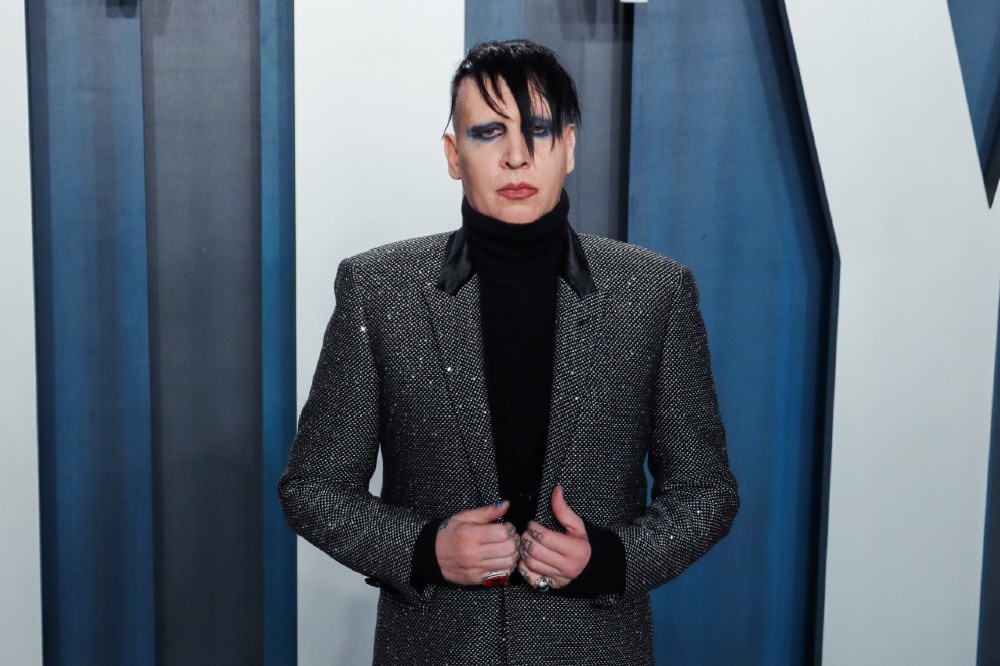A Grammy might be one of the highest accolades a musician can receive in their career, but the Recording Academy has made some questionable decisions in recent years. This year has been just as controversial, and with that in mind, we’re starting to wonder if the Grammys is still relevant to today’s music industry.

Photo credit: Sipa USA/PA Images
If anyone was offended by Kanye West (we can’t call him “Ye”, we just… can’t) enlisting the likes of Marilyn Manson and DaBaby on his new album Donda, that’s probably exactly what he wanted. The man will do simply anything for attention now, including taunting the public by supporting a potential sex offender and a homophobe, and to make matters worse, the Grammys have played right into his hands and nominated the record for Album of the Year.
“WTF” doesn’t even come close to expressing our distaste at this endorsement of someone who clearly has no regard for the feelings of his female and LGBT fans.
To make matters worse, the Grammys have also nominated Louis C.K.’s Sincerely Louis CK for Best Comedy Album, and Dave Chappelle’s 8:46 with Amir Sulaiman for Best Spoken Word Album; this is in spite of sexual misconduct allegations against the former and recent accusations of transphobia against the latter.
There’s impartiality and then there’s inadvertently demonstrating that celebrities can abuse their power however they like and they’ll still be represented by a major recording association. It’s a slap in the face to every female recording artist who has ever had to stand against sexual abuse - be at the hands of a manager, producer or partner - and every queer artist whose identity has forced them away from mainstream music culture.
Even aside from who the Recording Academy choose to nominate for the Grammys, there’s always some controversy every year.
This year saw many accusations of corruption, partisanship and nepotism from the likes of Halsey, The Weeknd and Zayn Malik, who all suggested in some way that people did not win awards based on their talent, but their popularity with the organisers. Last year saw former Recording Academy CEO Deborah Dugan making similar claims after she was dismissed from her position over accusations of bullying.
In 2019, Grammy producer Ken Ehrlich was also accused of bullying by both Ariana Grande and Nicki Minaj, and the previous year saw the Grammys allegedly directing funds away from the MusiCares charitable organisation to pay for the $8 million more it cost them to host the show in New York City instead of Los Angeles.
It’s no secret that the Grammys is one of the most corrupt award shows in showbiz, but at least it seems like people are finally starting to see it for themselves. Viewership for the broadcast has been steadily dropping for the last four years, with this year drawing a meagre 8.8 million viewers which marks a startling 53% drop after 2020’s event. (On the other hand, the live stream was up 83% from 2020 so perhaps the Grammys is just an internet phenomenon now).
Still, awards shows are about as relevant as radio play these days. With most people finding music through streaming services like Spotify and Apple Music, and building their listening with the suggestions from those apps, it’s not like awards bring in much more visibility for artists.
The pressure of the Grammys can impact artists themselves, of course, reducing their artistry to accessible, people-pleasing albums that generally shape the formulae of award winners. But music has never been more eclectic than now though, and artists never more rebellious. With that in mind, association with a mainstream show like the Grammys has the capacity to negatively affect the credibility of more experimental musicians.
MORE: Miley Cyrus laughs off Grammys 2022 nominations snub
This historic awards show is long past its best, so let’s do the music industry a favour and tune out of this corrupt, capitalist travesty for 2022 and forever.
Tagged in Grammy Awards Kanye West Marilyn Manson

